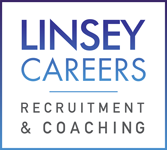As communicators, interviewing for a new role would seem like a walk in the park, using one of your best skills to land that next great opportunity. Unfortunately, the many lessons often taught by communicators, are not put into practice during an interview.
When preparing for an interview, these four steps will ensure you are ready to share valuable and relevant information, using tools you already have in your communicator’s toolbox.
Do your homework:
Research the company, the position, and as much as you can about the hiring manager and the team prior to the interview. Some of this information can be obtained through basic web research, but it is also helpful to speak to people who know the key players or currently work at the company. Using your own network or connections on Linked In is a good place to start.
Doing your homework also includes learning a little about every company for which you submit a resume online. When that initial screening call comes in response to your submission, it can be uncomfortable for both sides if you have no idea what the company does or why you even applied for that specific role.
Prepare your key messages:
Just like in the Preparing Key Messages article for basic networking and introduction conversations, it is important to prepare those relevant examples for the work that you’ve done. Similar to preparing Frequently Asked Questions (FAQ) documents for a corporate communications initiative, anticipate what questions would be asked in an interview and prepare your key messages to answer those questions. Remember to include examples of times things went well – but don’t forget to anticipate answering questions about when things went wrong. Be sure you can talk about what you did to fix the situation as well as what you learned from the experience.
Not all interviewers are the same:
The all interviewers have the same level of experience gathering information to make a good hiring decision. As a communicator, use your professional skills to pay attention to the interviewer and potentially guide the process allowing you to get your key messages to the manager in a way that is beneficial to both of you. Listen to the questions and be sure you answer what is being asked, then bridge into an example or key message to further illustrate the point. Be careful not to dominate the discussion and check in with the interviewer to confirm you are on track with what he or she is seeking to learn from you.
It is equally important to not allow the interviewer to do all the talking – not giving you time to share what skills and experience you could bring to the role. If you find the interviewer talking more than asking questions, look for opportunities to interject specific questions and examples of your experience that are relevant to the challenges the manager may be describing.
Closing the conversation:
As the interview comes to an end and you’ve had the opportunity to ask a few thoughtful questions, there are two final ones that will help as you close the conversation:
– Based on our conversation today, how well do you see my experience and skills being a fit for this role?
– What is your timeline to fill this role? And/or what are the next steps?
And finally, always get a business card of every person you meet with so that you can follow up with an email and/or handwritten thank you note. In every case, hiring managers notice the follow up – or lack of it.



